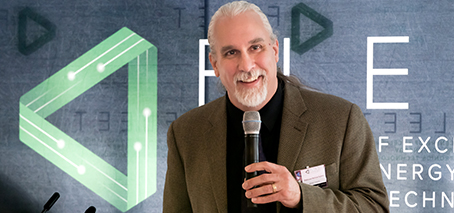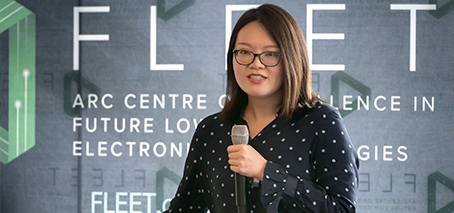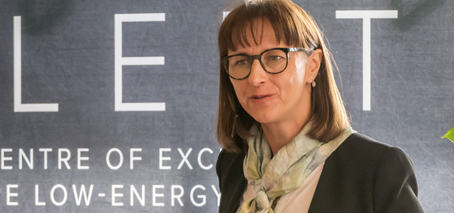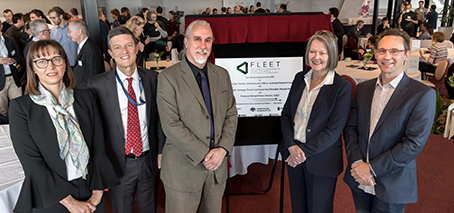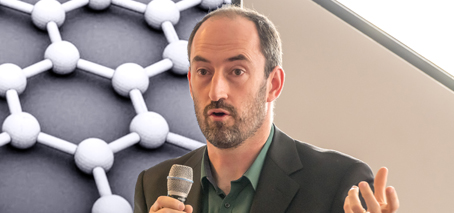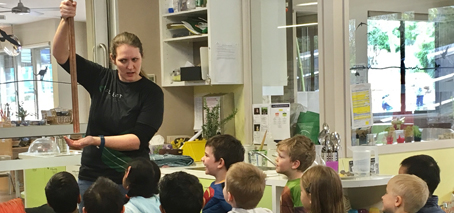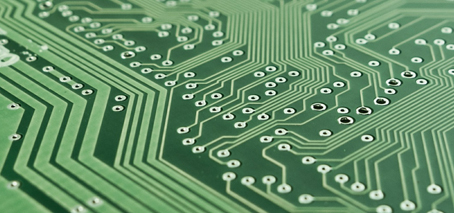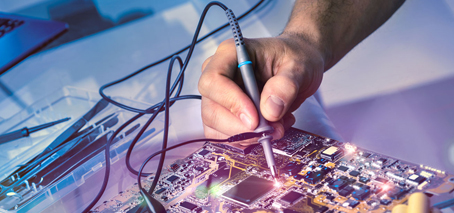FLEET will deliver much more than excellent science for Australian society. We are training some of the next generation of scientists, engineers, and entrepreneurs. We will help them develop not only technical research skills, but also transferable skills that will be useful to them no matter what their eventual career direction. For example, we have ensured that our research groups …
FLEET’s challenge and legacy
The challenge of finding a sustainable path to continuing the IT revolution is critical, and time is running out. I can tell you today with reasonable certainty that Moore’s Law will be declared dead within the seven-year operation of the Centre–perhaps even before our mid-term review! Computer chips will cease to gain in efficiency, and yet our demand for computation …
The case for FLEET: 8% of global electricity now consumed by computing
The information technology revolution has improved our lives, and we want it to continue. For example, our smartphone has become one of the most important devices of our everyday life: we use it to access up-to-date weather predictions, to plot the best route through traffic, and to watch the new series of House of Cards. And we expect it be …
Launching low energy electronics: FLEET Launch 12 June
Our insatiable appetite for computing means ITC already consumes 5–8% of global electricity, and is doubling each decade. Unless that ever-growing demand for computing can continue to be met with efficiency gains, the information revolution will slow down from power hunger. At the launch of a new Australian Research Council Centre of Excellence the audience heard that efficiency gains in current, …
Launch of FLEET Centre of Excellence to tackle hidden energy costs of computing
Official launch: Australian Research Council Centre of Excellence in Future Low-Energy Electronics Technologies 12 June 2018, 11 AM New Horizons Building, Monash University, Clayton We have an insatiable appetite for computing. But our ongoing need for computation is burning more than 5 percent of global electricity. And that figure is expected to double each decade. A new Australian Research Council …
The innovative science behind FLEET: Jared Cole at the Centre Launch
When using an electronic device to watch tv, listen to music, model the weather or any other task that requires information to be processes, there are millions and millions of binary calculations going on in the background. There are zeros and ones being flipped, added, multiplied and divided at incredible speeds. The fact that a microprocessor can perform these calculations …
Sharing a passion for science: outreach to schools
FLEET shares the responsibility to support students and teachers to increase participation in science, and in particular works towards increasing the number of girls and women participating in physics, chemistry and engineering. The Centre Launch on 12 June will showcase FLEET’s science outreach programs, educating the public and inspiring a new generation of scientists. Home Science and FLEET Geeks programs …
FLEET’s grand challenge: minimising the energy used in computation
FLEET addresses a grand challenge: reducing the energy used in information technology (IT), which already accounts for 5% of the electricity use on Earth, and is doubling every 10 years. The current, silicon-based technology is 40 years old, and reaching the limits of its efficiency. However, fundamental physical limits show that computing efficiency could still be several orders of magnitude …
FLEET research structure
FLEET will develop new systems in which electricity can flow with minimal resistance and dissipation of heat, and develop devices in which that dissipationless electric current can be switched on and off. These devices will enable revolutionary new electronics and communications technologies with ultra-low power consumption. FLEET is pursuing the following research themes to develop systems in which electrical current can flow …


